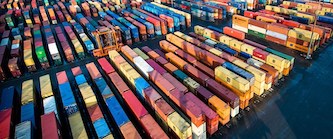The CEO of Liverpool-based Peel Ports Group, the UK’s second largest port operator, told Reuters that cargo shippers are diverting goods to ports across the UK other than Dover to ensure stable supply lines amid Brexit uncertainty.
Peel Ports owns and operates six of the UK’s most important ports including Liverpool, Heysham, Manchester Ship Canal and Medway (Sheerness/Chatham).
Peel Ports chief executive Mark Whitworth told Reuters his group has seen more cargo traffic shifting to other UK docks in an effort to avoid over dependence on Dover, Europe’s busiest ferry port.
Whitworth said Peel had witnessed an increase in TEU (20-foot equivalent unit) container volumes as importers switch to using box containers rather than trucks to alleviate dependence on ports such as Dover.
Dover is the biggest UK port that can handle trucks, which are shipped in special roll-on, roll-off carriers.
Using box containers allows more delivery options.
“We are seeing it twofold — through the container flows into our ports and an uplift of broadly around 6% (year-on-year) certainly through our BG shipping line,” Whitworth said, referring to Peel’s BG freight company.
“What you are seeing is a migration towards more unitised cargo,” he told Reuters. “Therefore they have a wider choice of points of entry.”
Whitworth said Peel Ports had upgraded 20 acres of space around various port facilities to ensure there was enough capacity, helped by a UK government investment initiative to boost readiness at ports across the country.
He added that warehouses around the group’s ports were broadly full due to stockpiling by customers.
“You are generally finding that warehousing has been at a premium for some time — there is very little spare capacity of any significance,” he said.
Whitworth said its port areas in Sheerness and Great Yarmouth had stocks of cars that were not being sold on.
“We are full and it’s not moving from a business point of view,” he said.
